In today's diverse workplaces, enforcing an anti-discrimination policy is crucial for fostering an inclusive environment. Discrimination in any form not only undermines employee morale but can also lead to serious legal repercussions for organizations. By actively promoting and enforcing such policies, we ensure that every individual feels valued and respected. Curious to learn how to implement these essential measures effectively? Read on!

Clarity in Policy Terms
The enforcement of anti-discrimination policies requires clarity in policy terms to ensure effective implementation across organizations, such as businesses or educational institutions. Clear definitions of key terms like "discrimination," "harassment," and "equal opportunity" must be specified to avoid ambiguity and foster understanding among employees and stakeholders. Regular training sessions and workshops can reinforce these definitions, ensuring all personnel are aware of their rights and responsibilities under policies established in compliance with federal laws, such as the Civil Rights Act of 1964. Effective communication channels must be established for reporting incidents, ensuring confidentiality and support for victims, promoting a safe and inclusive environment. Additionally, periodic reviews of the policy documentation can help address emerging issues, aligning policies with evolving societal standards and legal frameworks.
Legal Compliance and References
The enforcement of anti-discrimination policy requires adherence to various legal frameworks, including Title VII of the Civil Rights Act of 1964. This federal law prohibits employment discrimination based on race, color, religion, sex, and national origin. Additionally, the Americans with Disabilities Act (ADA) protects qualified individuals with disabilities from discrimination in various areas, including employment, public accommodations, and telecommunications. Relevant case law, such as Griggs v. Duke Power Co. (1971), established the precedent for assessing employment practices that disproportionately affect minority groups. Compliance with applicable state laws, such as California's Fair Employment and Housing Act (FEHA), is also imperative, as these laws may provide broader protections than federal statutes. Organizations must implement rigorous training programs, establish clear reporting mechanisms, and actively monitor workplace culture to ensure adherence to these legal standards, aiming to foster a safe and inclusive environment for all employees.
Reporting Mechanisms
Effective reporting mechanisms are essential for enforcing anti-discrimination policies within organizations. Employees must have access to multiple channels, such as dedicated hotlines and anonymous online forms, to report discrimination incidents without fear of retaliation. Training sessions, conducted annually, should inform staff about available resources and the reporting process. Designated personnel, including HR representatives and compliance officers, must be equipped to handle reports sensitively and confidentially while adhering to legal guidelines. Regular audits, conducted every six months, will assess the effectiveness of these mechanisms, ensuring that all cases are addressed promptly and thoroughly.
Consequences for Non-Compliance
Non-compliance with anti-discrimination policies can lead to serious repercussions for organizations and individuals, including financial penalties, legal action, and reputational damage. Organizations may face fines imposed by regulatory bodies, which can amount to thousands of dollars depending on the severity of the violation. Employees found in breach of these policies could experience disciplinary measures, ranging from verbal warnings to termination, especially in cases of harassment or discrimination. Legal consequences may include lawsuits filed by affected parties, which can result in costly settlements or judgments. In the workplace, a toxic environment created by discrimination can lead to decreased employee morale, higher turnover rates, and lower productivity, ultimately impacting the organization's performance and profitability. Such ramifications underscore the necessity of enforcing anti-discrimination policies consistently and effectively across all levels of an organization.
Support and Resources Available
Anti-discrimination policy enforcement ensures fairness and equity in workplace practices, promoting an inclusive environment across diverse sectors. Organizations implement training programs to educate employees on identifying and reporting discrimination, fostering awareness about protected categories under laws such as the Equality Act 2010 in the United Kingdom or Title VII of the Civil Rights Act in the United States. Support resources include dedicated hotlines, employee assistance programs, and access to external counseling, ensuring individuals have avenues for reporting grievances. Compliance with anti-discrimination policies also enhances workplace morale, improving retention rates, which is crucial in competitive job markets like Silicon Valley or New York City. By prioritizing these policies, organizations demonstrate commitment to social justice, cultivating a safe and respectful space for all employees regardless of ethnicity, gender, sexual orientation, or background.
Letter Template For Anti-Discrimination Policy Enforcement Samples
Letter template of anti-discrimination policy acknowledgment for employees
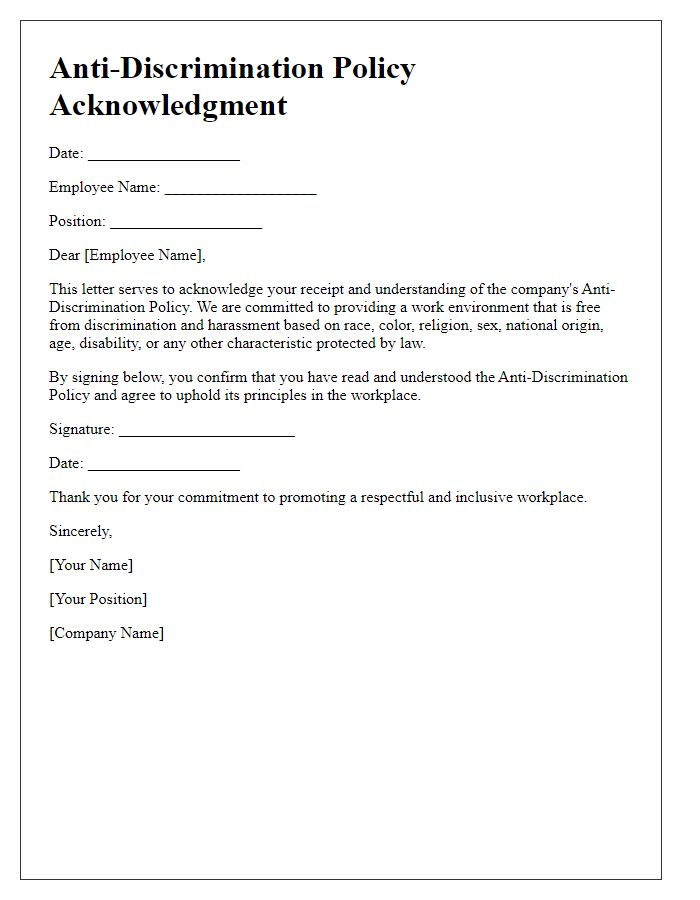
Letter template of anti-discrimination policy review and update notification
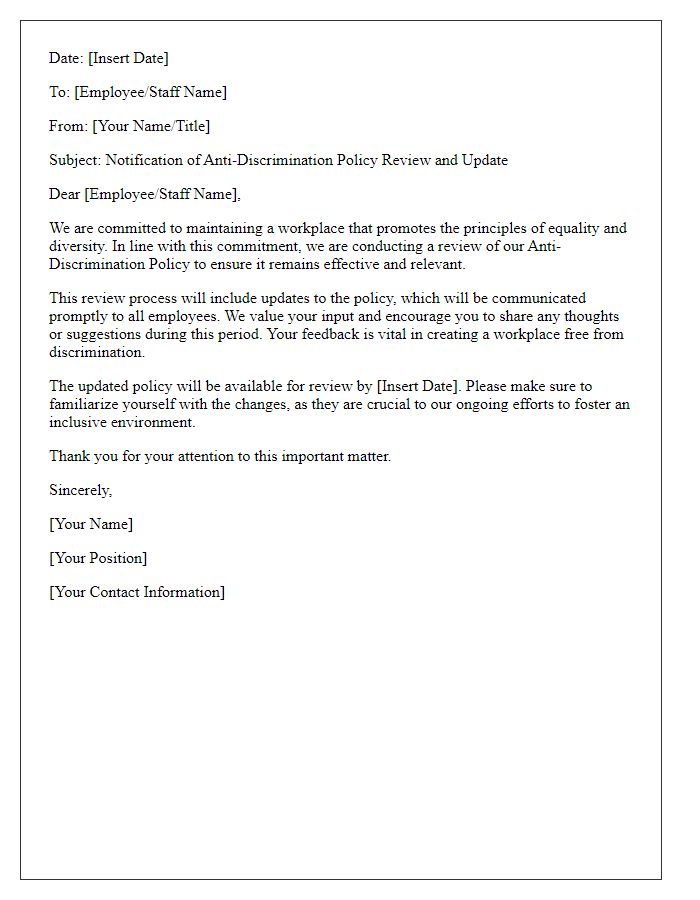
Letter template of anti-discrimination policy implementation announcement
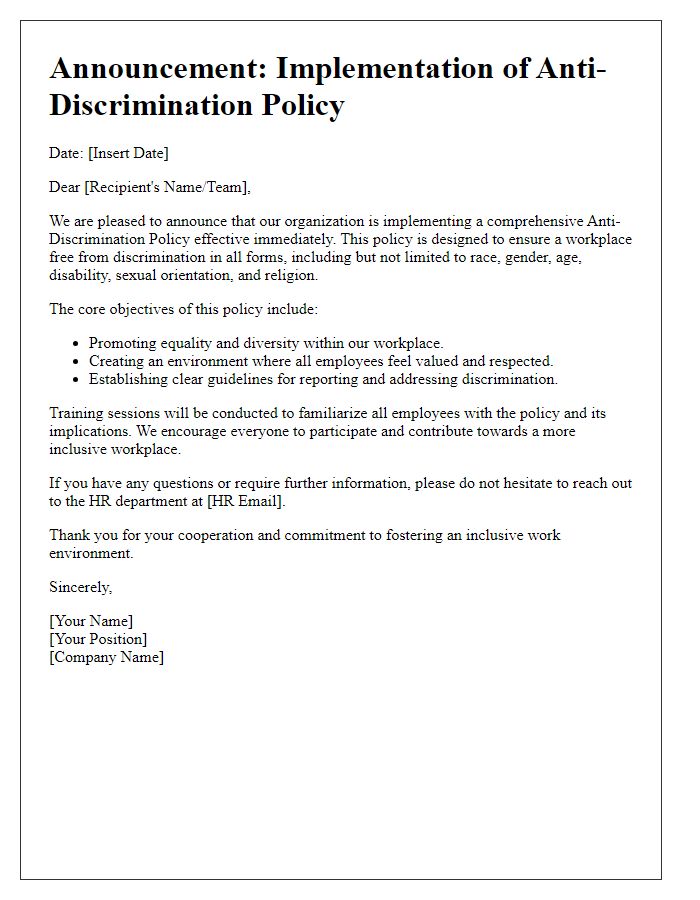

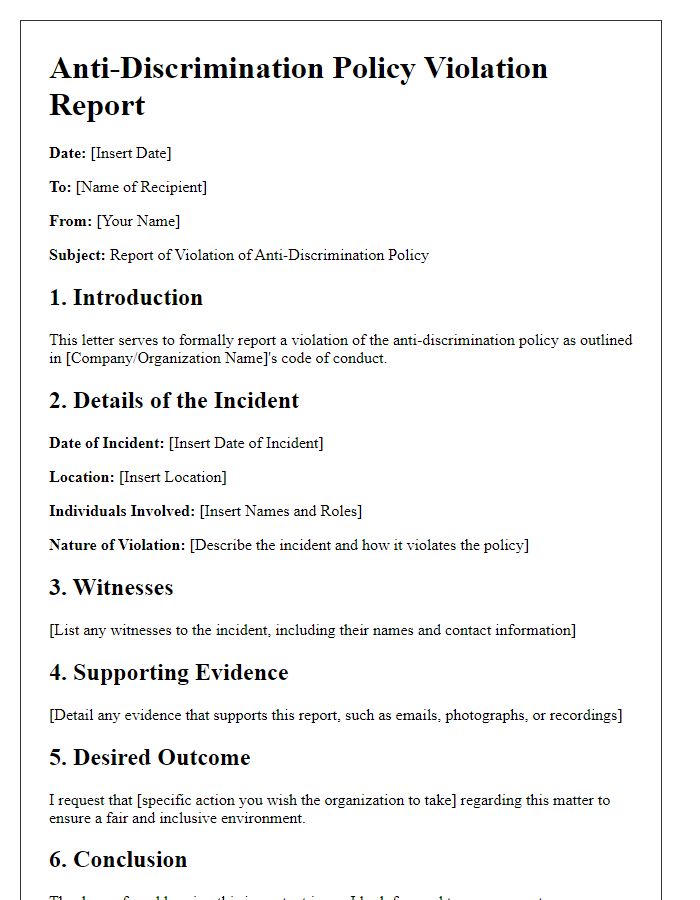
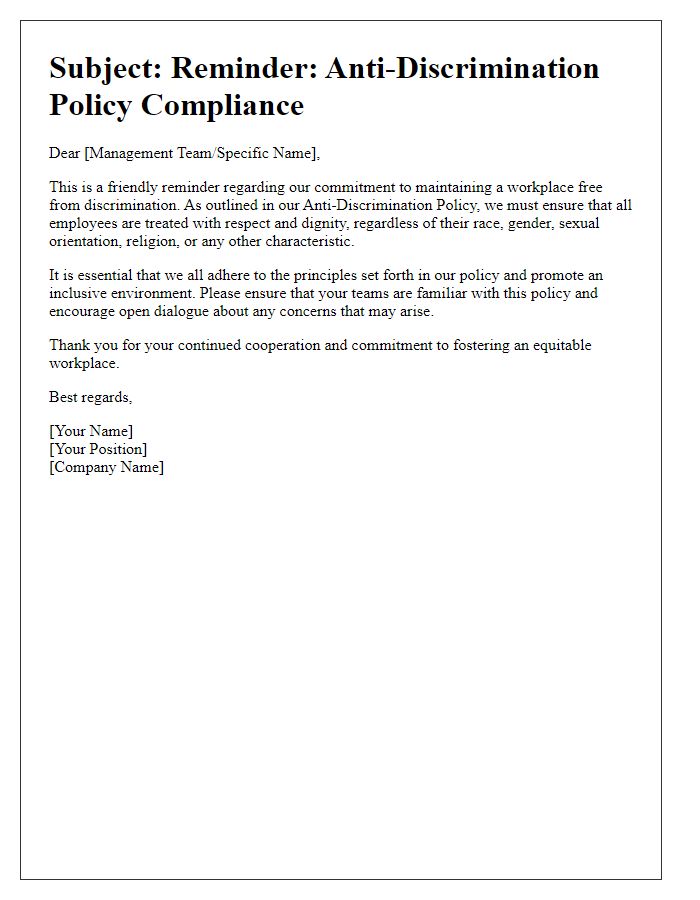
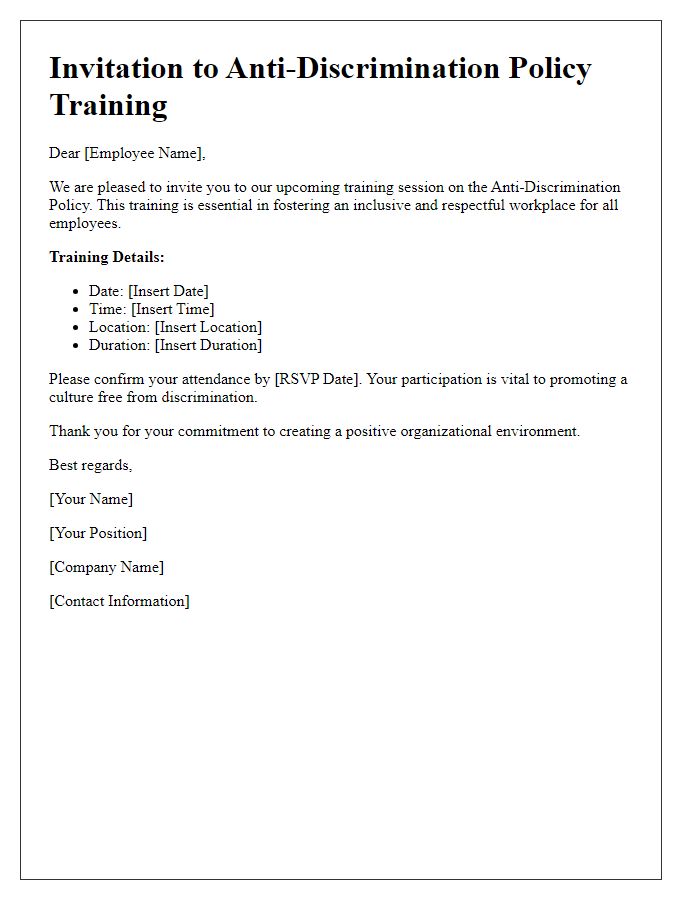
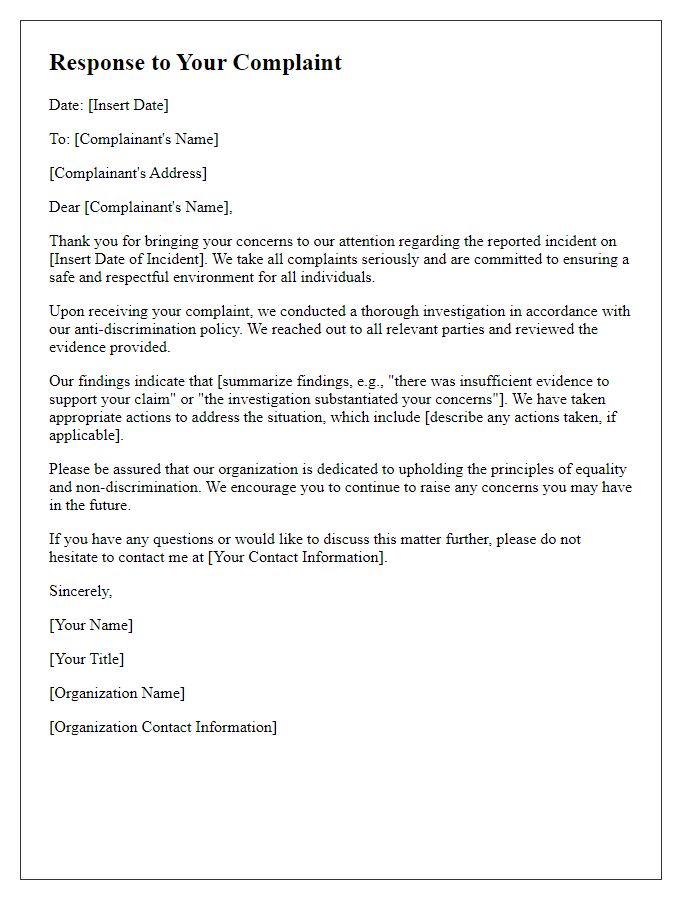
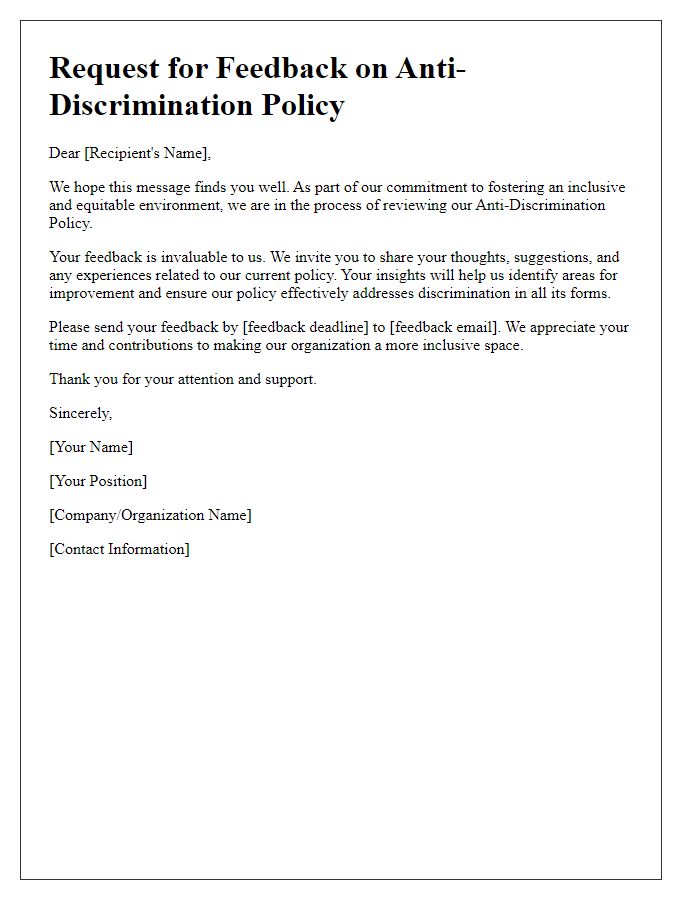
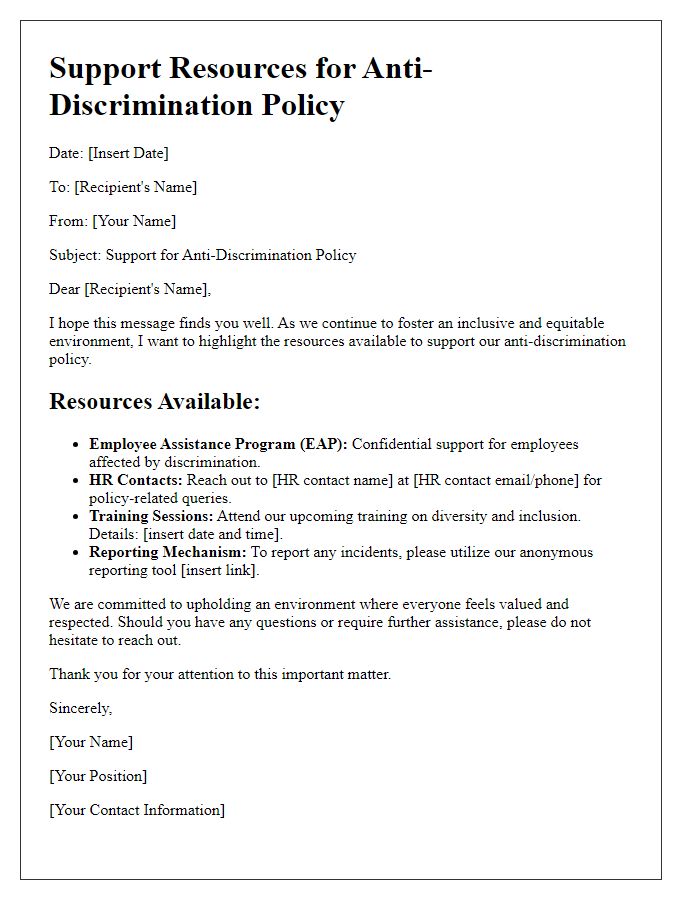
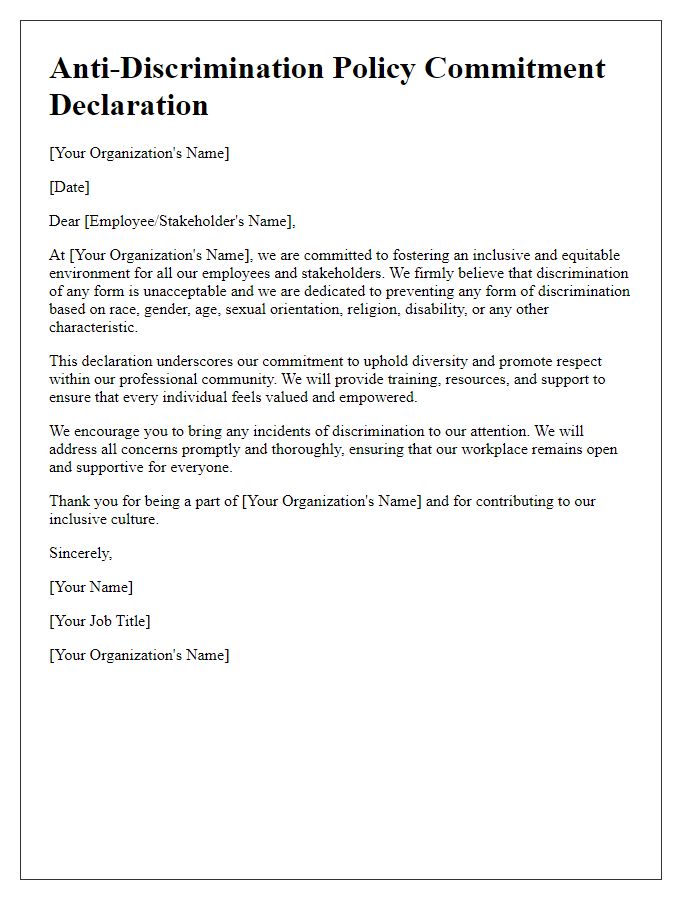


Comments